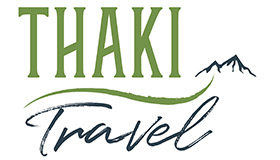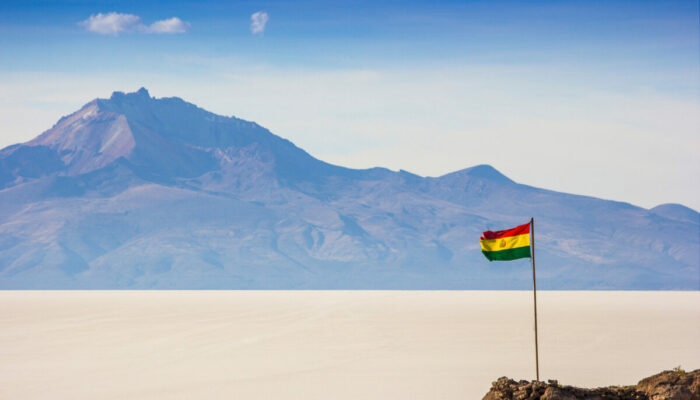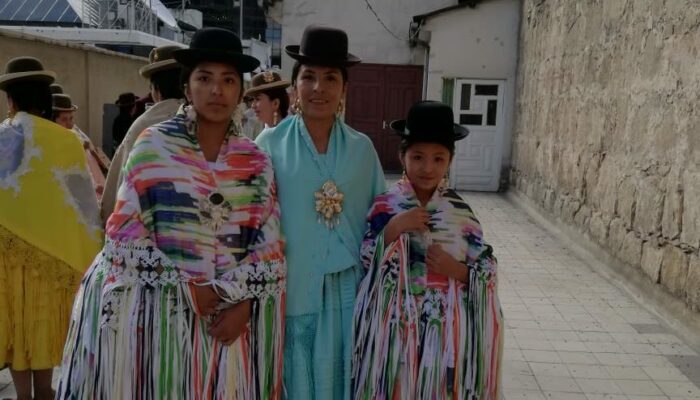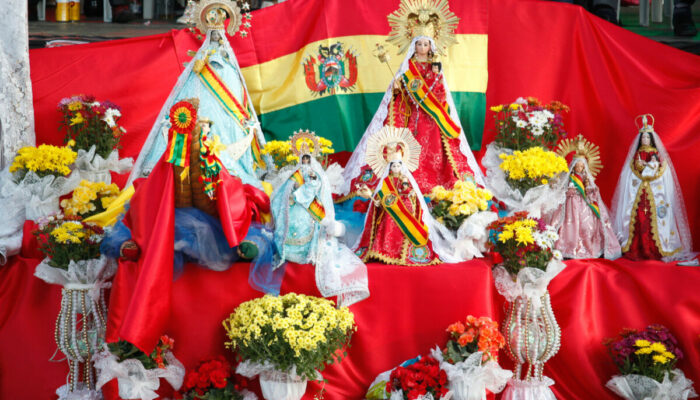Pachamama, that’s a melodious word you’ll have read many times in the writings of Thaki Voyage. But what does Pachamama really mean, where does it come from and, above all, what place does it hold in the hearts of the Andean peoples?
Mother Earth, otherwise known as Pachamama, is the most important deity in South America, and is considered by Bolivians to be the mother of us all. The month of August is dedicated to her, to thank her for the abundance she provides throughout the year; many offerings are made to her, so August is the perfect opportunity to talk to you about her!
Let’s kick off these 31 days of celebration by devoting the article she deserves and, above all, by honoring her as she deserves.
The spirit of our earth
Pachamama comes from the word pacha, which in Aymara and Quechua means earth and universe, and from the word mama, meaning mother: it therefore symbolizes Mother Earth. More specifically, Pachamama is a deity who represents the cosmos, time and space, in other words, a set of elements that are essential for societies like Bolivia, which depend directly on the earth’s resources and nature.
A large part of the country’s population remains rural, and traditional customs are still deeply rooted in the hearts of the locals. As a result, Bolivians have great respect for the Pachamama, and don’t hesitate to venerate her for the good harvests she provides. She is the incarnation of Mother Earth.
As she has no physical body, the Madre Tierra honors herself in the heart of nature. She is considered generous, fertile and abundant, so it’s essential for men to maintain a positive relationship with her, as the goddess can also take revenge if she isn’t thanked as tradition dictates.
August, the month of the Pachamama
But how do you show your gratitude to the Pachamama? You’ll find that in Bolivia, it’s customary to make offerings. Whether you’re discovering the mines of Potosí and the famous tío, or adopting an Ekeko, giving thanks is a necessity, and a credit to Bolivian traditions and mentality, inherited from pre-Inca culture, where man is an integral part of nature and vice-versa.
It is possible to pay homage to Mother Earth all year round by contacting a yatiri, an Aymara wise man, or through various rituals. However, August is the ideal time to show gratitude and help the earth, depleted by past harvests, to nourish itself again.
In August, Bolivians celebrate the Pachamama in unique ceremonies. More gentle practices, such as blessing the land with alcohol, are performed, or a more complex ritual in which a llama foetus is buried. This ritual is very common, as it helps ward off evil spirits.
In addition to this month dedicated to the Pachamama, the Fiesta del Espíritu in Potosí, which takes place on the last three Saturdays in June and the first Saturday in August, is also an opportunity to attend thanksgiving ceremonies. These are prepared by the town’s miners, who bury llama legs. The purpose of this offering is to invoke Mother Earth to bring luck and protection, as well as help and blessing, to mine workers.
From generation to generation, let's sing to the Pachamama!
Today, these rituals are still very much alive, and the cult of Pachamama continues to live on in the hearts of young and old alike, whether Bolivian or not. A case in point is the European-Canadian animated film Pachamama, released in 2018.
Although the action takes place in Peru, it’s this same love for the goddess Pachamama that animates Bolivians, because for the Quechua peoples, Mother Earth is the deity of the Peruvian and Bolivian hills, but also of northwest Argentina.
Soak up the song Somos la Nueva Tierra and its lyrics:
Soy el árbol, soy la piedra
Soy todos y no soy
Soy el niño y el cactus
Todos somos uno
Pachamama perdona
Madre tierra al hombre
Somos la nueva tierra
Sembrando semillas de luz en los corazones
Las raíces en la tierra
Las ramas al cielo
Agradezco madre tierra
Todos mis ancestros
La luna y las estrellas
Todo el universo
Through the purity, simplicity and beauty of her words, we understand that the Pachamama is hidden in a detail or element of the earth: “I am the tree, I am the stone, I am everyone… I am the boy and the cactus, we are one… I thank Mother Earth, all my ancestors, the moon and the stars, the whole universe.”
As you’ll see during your stay in the country, in Bolivia, Pachamama is ingrained in everyone and guides locals in their daily lives, which is why the “Mother Earth” law has been in place in the country since 2011. This law establishes equality between the rights of man and those of nature, so there is no separation between the two, contrary to the Western vision. This allows us to rethink our conception of life, the over-exploitation of the Earth’s riches and, above all, to be grateful for what we have. We’d be nothing without the water that keeps us hydrated, the air that lets us breathe or the fruit that nourishes us, and Bolivians have understood this for centuries!
We leave you to hum along to this music, hoping one day to share with you the love we have for all the values that make Bolivia so beautiful and unique. Please don’t hesitate to contact us.
But until we meet you, Thaki Voyage is delighted to wish you an excellent Pachamama month! Take care of yourselves and our precious Earth, as she takes care of us, see you soon!
Mathilde Leroux



